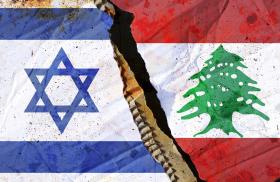Since the 1955 Bandung conference of non-aligned countries, North Korea has based its foreign policy on the concept of chu'che (self-reliance) and has sought to establish an independent position in the developing world so as to acquire international legitimacy. Its motivations for involvement in the Middle East have gradually shifted over the past forty years from a desire to gain legitimacy and recognition to punishing the United States for its leading role in the Korean War to boosting the sagging North Korean economy. Pyongyang's activities in the region represent a significant foreign policy challenge for the United States.
In the late 1950s North Korea began providing political, financial, and minor military assistance to a number of terrorist and revolutionary groups in the Middle East. Its frequent use of radical regimes as conduits and surrogates for supporting terrorism and revolutionary movements throughout the world has frustrated U.S. efforts to combat international terrorism.
The expansion of the North Korean economy in the late 1960s allowed President Kim Il Sung to adopt a more confrontational policy with South Korea and the United States. North Korea dramatically increased military aid to many terrorist and revolutionary groups. It continues to support rogue and rejectionist regimes opposed to the Arab-Israeli peace process.
Since 1980, however, North Korea's economy has teetered near collapse, prompting its leadership to adopt an activist policy to earn foreign currency abroad. Pyongyang provided tremendous military assistance to Iran during its war with Iraq. As the former Soviet republics and China have scaled back on sales of nonconventional weapons to the region in the face of international pressure, North Korea has become the leading proliferator of ballistic missiles, weapons of mass destruction (WMDs), and related technology. This poses a serious threat to regional and global security.
North Korea has provided short-range ballistic missiles (based on the Soviet Scud-B) and/or related technology to Egypt, Iran, Libya, and Syria and has cooperated with them in the development of more modernized versions. Having tested its medium-range Nodong I missile, North Korea is expected to offer to sell it to Middle Eastern countries once it is in production. In addition, there is evidence that it played a crucial role in Syria's acquisition of a chemical warhead production capability for ballistic missiles in the late 1980s.
In the nuclear field, North Korea's most significant regional partner is Iran, and there is a high probability that Pyongyang will seek to sell nuclear weapons technology to Tehran.
As part of the overall U.S. strategy for dealing with North Korea, it is important to close Pyongyang's outlets for arms sales by influencing its primary Middle East clients, Iran and Syria. This will require close coordination with key U.S. allies in the Middle East (Saudi Arabia, Egypt, and Israel), Europe (particularly Germany), and Asia (particularly Japan).



